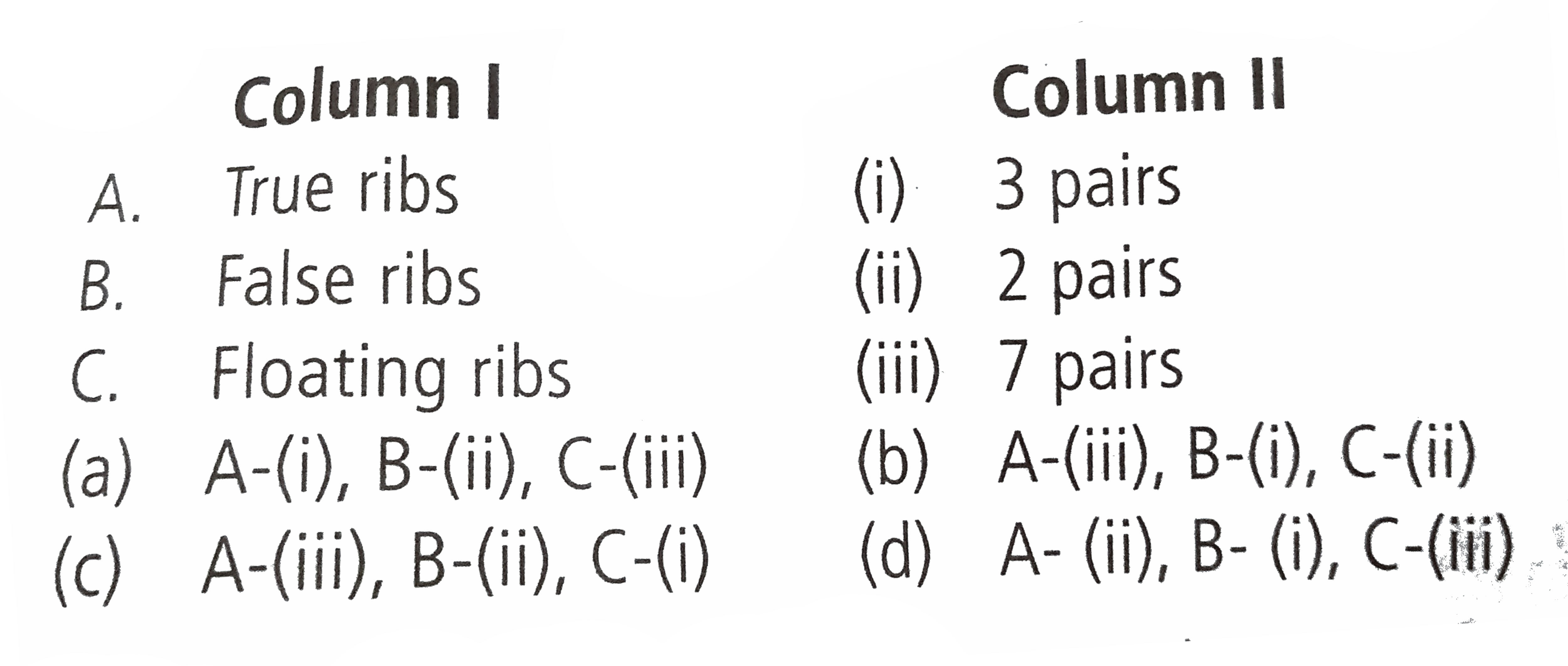Match column I with column II and select the correct option from the given codes.
Column IColumn IISaltation(i)DarwinFormation of life was perceded by chemical evolution(ii)Louis pasteurReproductive fitness(iii)de VriesReproductive fitness pre-existing life(iv)Oparin and Haldane
i-C, ii-A, iii-B, iv-D
i-D, ii-C, iii-B, iv-A
i-C, ii-D, iii-A, iv-B
i-B, ii-C, iii-A, iv-D
The correct Answer is:A
To solve the problem of matching Column I with Column II, we need to analyze each term in Column I and identify the corresponding scientist or concept in Column II. Here’s a step-by-step breakdown:
Step 1: Identify the terms in Column I
- Saltation
- Formation of life was preceded by chemical evolution
- Reproductive fitness
- Reproductive fitness pre-existing life
Step 2: Analyze each term in Column I
1. Saltation:
- Saltation refers to a type of mutation characterized as a single step large mutation. This concept is associated with Hugo de Vries, who proposed the idea of saltation in the context of evolution.
- Match: Saltation → (iii) de Vries
2. Formation of life was preceded by chemical evolution:
- This concept is linked to the idea that life originated from chemical processes, which was notably proposed by Oparin and Haldane.
- Match: Formation of life was preceded by chemical evolution → (iv) Oparin and Haldane
3. Reproductive fitness:
- Reproductive fitness refers to the ability of an organism to produce offspring. This concept is closely associated with Charles Darwin, who emphasized the importance of reproductive success in natural selection.
- Match: Reproductive fitness → (i) Darwin
4. Reproductive fitness pre-existing life:
- This concept relates to the idea of life arising from earlier forms, which is associated with Louis Pasteur, known for his work on the origin of life and biogenesis.
- Match: Reproductive fitness pre-existing life → (ii) Louis Pasteur
Step 3: Summarize the matches
- Saltation → (iii) de Vries
- Formation of life was preceded by chemical evolution → (iv) Oparin and Haldane
- Reproductive fitness → (i) Darwin
- Reproductive fitness pre-existing life → (ii) Louis Pasteur
Step 4: Select the correct option from the given codes
Based on the matches:
- A → (iii) de Vries
- B → (iv) Oparin and Haldane
- C → (i) Darwin
- D → (ii) Louis Pasteur
The correct option that reflects these matches is option 3.
Final Answer:
The correct match is:
- A → (iii)
- B → (iv)
- C → (i)
- D → (ii)
- Saltation
- Formation of life was preceded by chemical evolution
- Reproductive fitness
- Reproductive fitness pre-existing life
- Saltation refers to a type of mutation characterized as a single step large mutation. This concept is associated with Hugo de Vries, who proposed the idea of saltation in the context of evolution.
- Match: Saltation → (iii) de Vries
- This concept is linked to the idea that life originated from chemical processes, which was notably proposed by Oparin and Haldane.
- Match: Formation of life was preceded by chemical evolution → (iv) Oparin and Haldane
- Reproductive fitness refers to the ability of an organism to produce offspring. This concept is closely associated with Charles Darwin, who emphasized the importance of reproductive success in natural selection.
- Match: Reproductive fitness → (i) Darwin
- This concept relates to the idea of life arising from earlier forms, which is associated with Louis Pasteur, known for his work on the origin of life and biogenesis.
- Match: Reproductive fitness pre-existing life → (ii) Louis Pasteur
- Saltation → (iii) de Vries
- Formation of life was preceded by chemical evolution → (iv) Oparin and Haldane
- Reproductive fitness → (i) Darwin
- Reproductive fitness pre-existing life → (ii) Louis Pasteur
Based on the matches:
- A → (iii) de Vries
- B → (iv) Oparin and Haldane
- C → (i) Darwin
- D → (ii) Louis Pasteur
The correct match is:
- A → (iii)
- B → (iv)
- C → (i)
- D → (ii)
Topper's Solved these Questions
Similar Questions
Knowledge Check
Match column I with II column II and select the correct option from the given codes .
 AA-(ii), B-(iii), C-(iv), D-(i)BA-(iii), B-(ii), C-(i), D-(iv)CA-(iii), B-(ii), C-(iv), D-(i)DA-(i), B-(ii), C-(iii), D-(iv)
AA-(ii), B-(iii), C-(iv), D-(i)BA-(iii), B-(ii), C-(i), D-(iv)CA-(iii), B-(ii), C-(iv), D-(i)DA-(i), B-(ii), C-(iii), D-(iv)Match column I with column II and select the correct option from the codes given below.
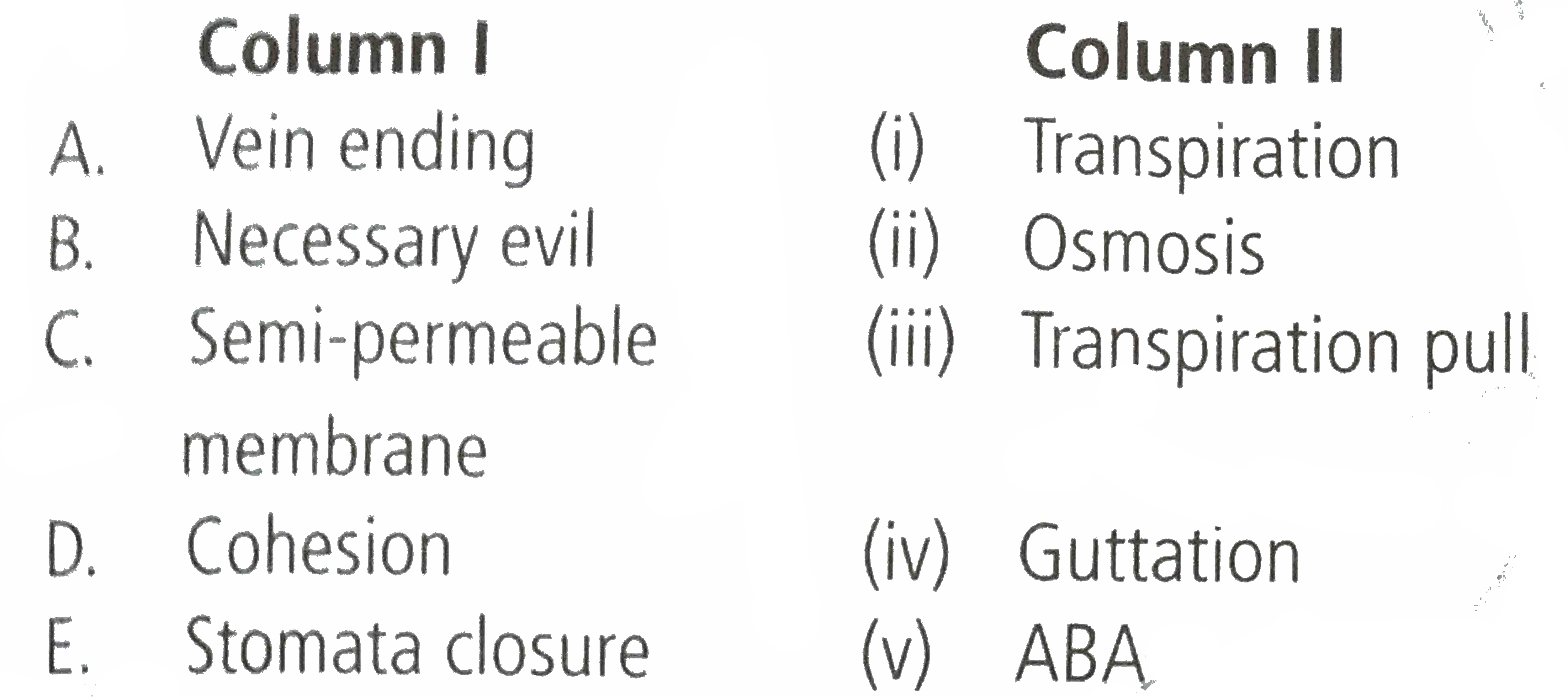 A(i)-D, (ii)-C, (iii)-A, (iv)-BB(i)-A, (ii)-B, (iii)-C, (iv)-DC(i)-D, (ii)-B, (iii)-A, (iv)-CD(i)-A, (ii)-C, (iii)-D, (iv)-B
A(i)-D, (ii)-C, (iii)-A, (iv)-BB(i)-A, (ii)-B, (iii)-C, (iv)-DC(i)-D, (ii)-B, (iii)-A, (iv)-CD(i)-A, (ii)-C, (iii)-D, (iv)-BMatch columnI with column II and select the correct option from the codes given below.
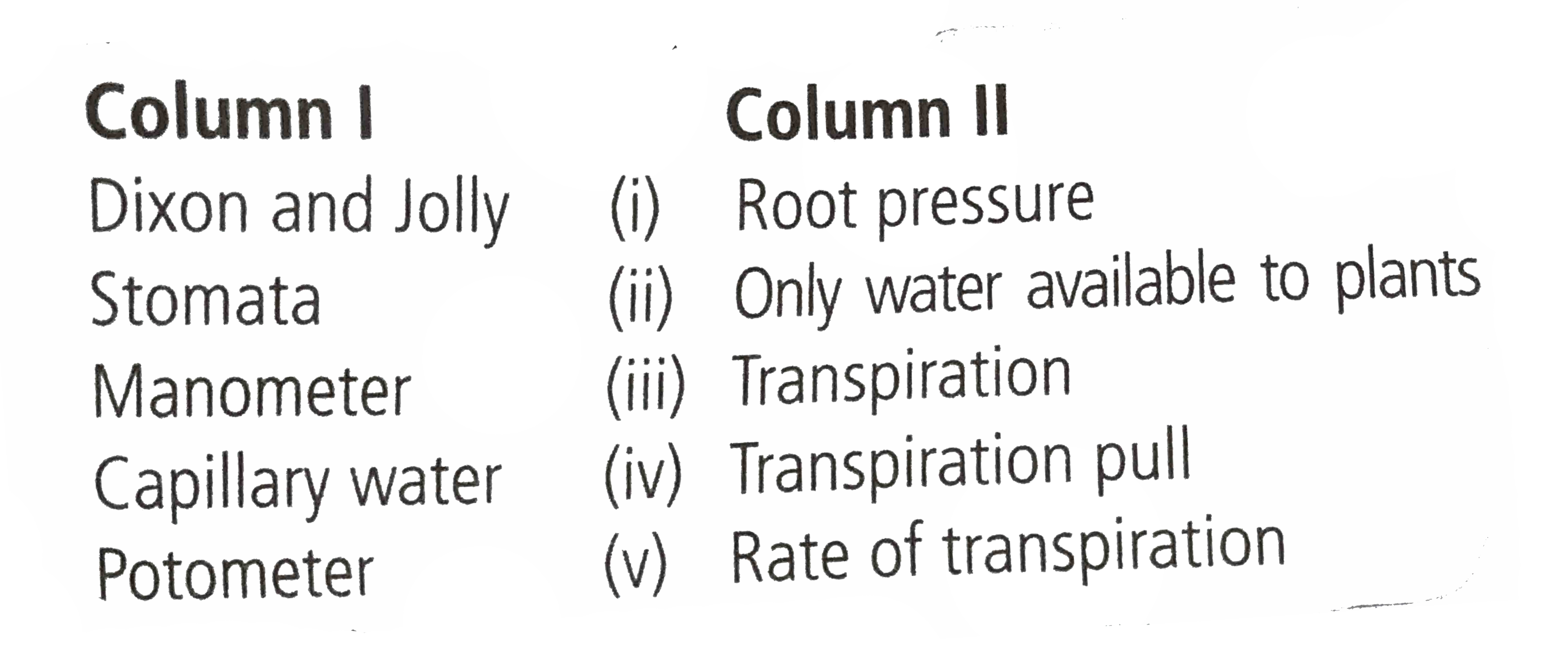 AA−(iv),B−(iii),C−(v),D−(ii),E−(i)BA−(i),B−(iii),C−(iv),D−(ii),E−(v)CA−(iv),B−(iii),C−(i),D−(ii),E−(v)DA−(v),B−(iv),C−(iii),D−(ii),E−(i)
AA−(iv),B−(iii),C−(v),D−(ii),E−(i)BA−(i),B−(iii),C−(iv),D−(ii),E−(v)CA−(iv),B−(iii),C−(i),D−(ii),E−(v)DA−(v),B−(iv),C−(iii),D−(ii),E−(i)
Match column I with column II and select the correct option from the codes given below.
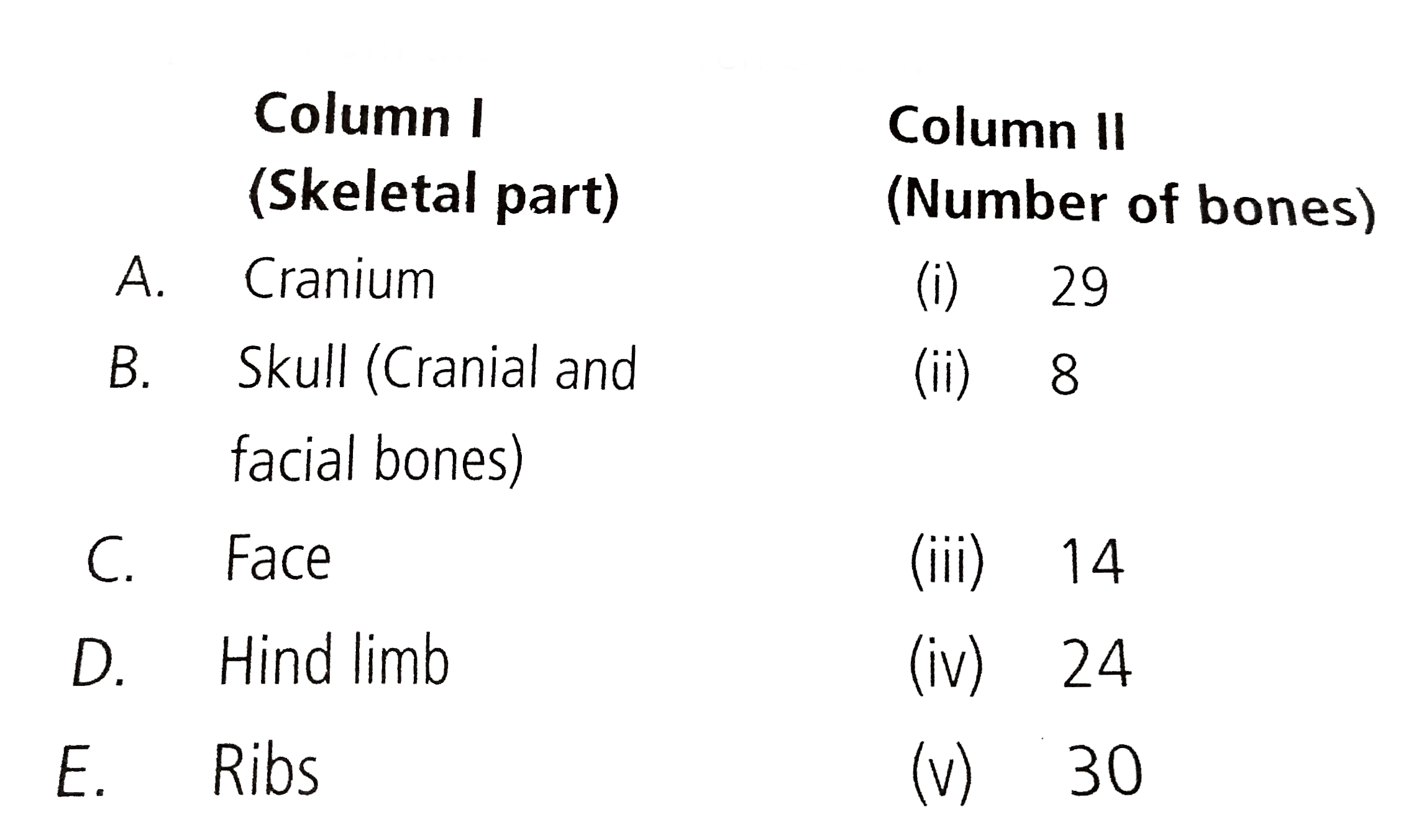
View SolutionMatch column I with column II and select the correct option from the codes given below.

View SolutionMathc column I with column II and select the correct option from the given codes.
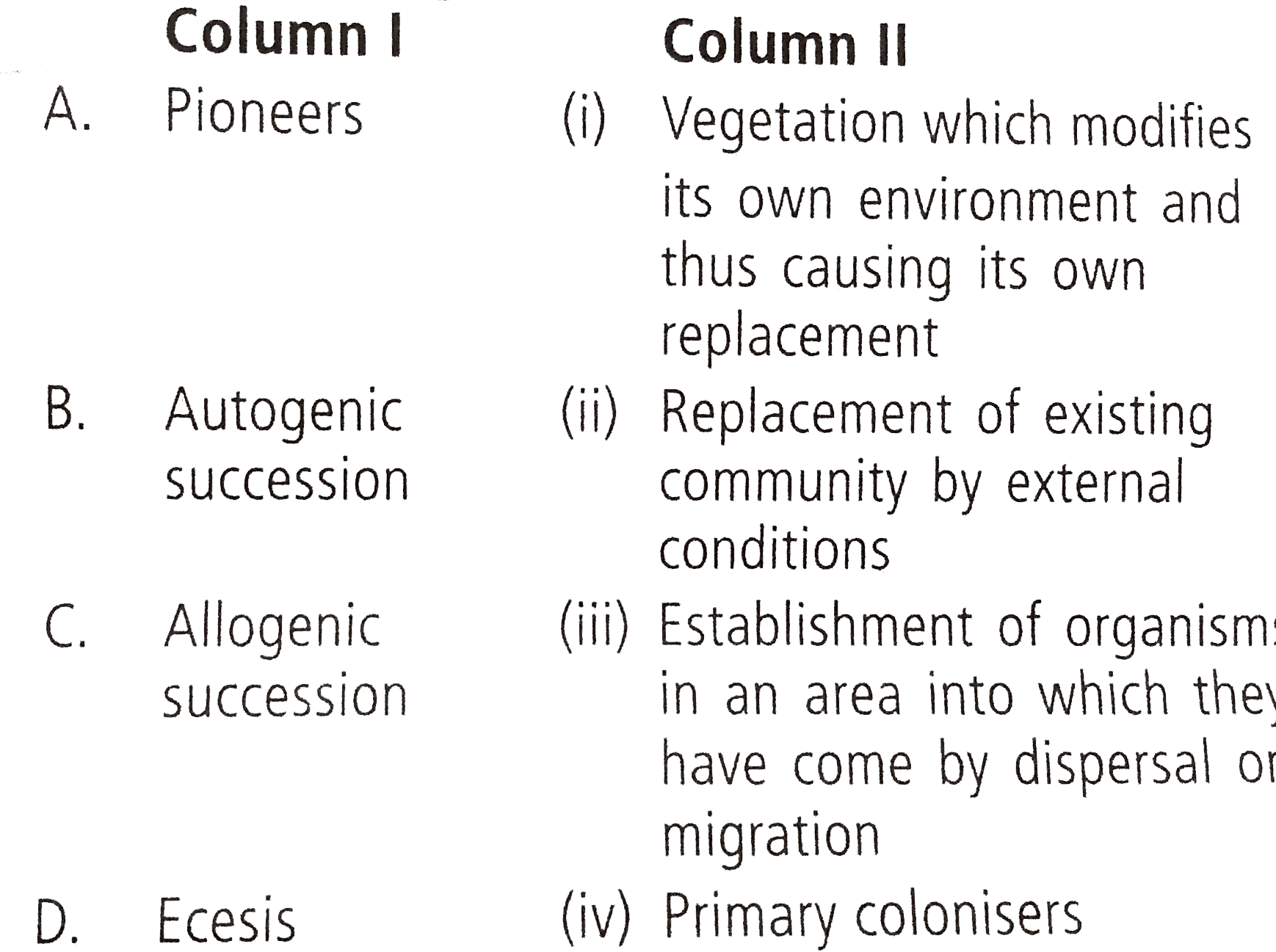
View SolutionMathc column I with column II and select the correct option from the given codes.

View SolutionMatch column I and II and select the correct option from the given codes.

View Solution

